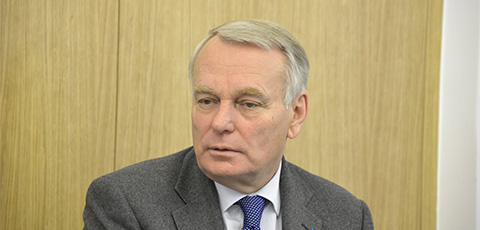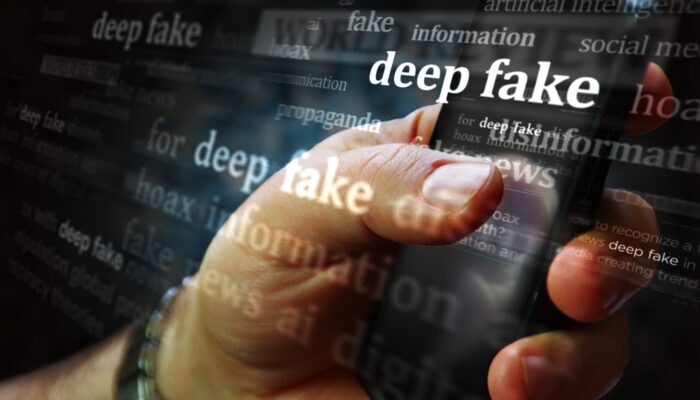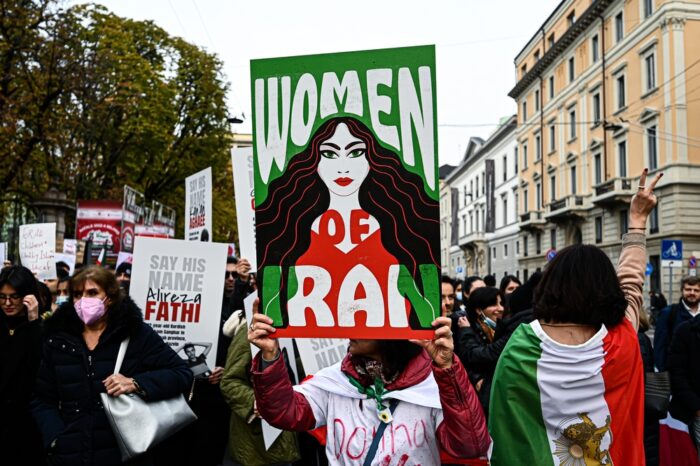Find all related Progressive Post
Progressive Post

The invasion of Ukraine by Russia is a real tragedy that will permanently upset international relations and brutally call into question many of our approaches. But let’s be clear: President Vladimir Putin’s brutality comes from afar. And for a possible future solution to the conflict, the EU must be around the table.
For my part, I remember a meeting with Vladimir Putin in the first days of November 2013 in Moscow, when I was the French Prime Minister. Already back then, during this meeting, Putin challenged me with virulence on the question of Ukraine. He was outraged by the European Union-Ukraine summit which was to be held in the following days to sign an association agreement between the European Union and Ukraine. And at the end of the exchange, Putin forcefully affirmed “anyway, this agreement will never be signed!” And indeed, the Ukrainian President Viktor Yanukovych, who was close to Moscow, finally refused to sign in.
This was followed by a powerful popular and democratic movement which lasted for months, until February 2014: the Maidan-movement, marked by a powerful popular determination which, despite fierce repression, ended up leading to Yanukovych’s departure, fleeing his country to take refuge in Russia. We know what happened next: the election of President Petro Poroshenko and the signing of the agreement with the European Union. But Putin wasted no time in launching his response, which was the annexation of Crimea and his support for the separatists in the Donbass. Admittedly, the Minsk agreements within the framework of the Normandy format did calm the situation, but the conflict in eastern Ukraine continued to be deadly, with nearly 15,000 victims throughout this period.
However, since 2014, democracy in Ukraine has continued to assert itself and the rapprochement with the European Union has been consolidated. President Putin has never accepted this. And he also has underestimated the Ukrainians, who are not ready to return to an authoritarian regime like the one in Moscow – especially since they also know what has been happening across the border in Belarus. Putin, by denying the Ukrainian national reality and the evolutions of society, underestimated the resistance to his aggression and he also underestimated the ability of Europeans to respond together and quickly to his intervention.
The Europeans, in particular in Eastern Europe, Poland, the Baltic countries, but also Romania and Bulgaria, have understood the threats and are obviously learning from them. This is also the case in Germany where strategic reviews are undertaken quickly in matters of defence, as well as in terms of energy resources. And NATO has quickly shown its unity and determination. NATO has indeed regained new vigour. This too, Putin had not taken into account: the US, who thought to refocus on the Pacific, Asia and the threat emanating from Chinese, are obliged to return to the question of security in Europe.
Despite the importance of its means, the Russian army is encountering great difficulties. Another disappointment for Putin lies in the fact that the sanctions produce their effects, and Putin has taken an immense risk of isolating his country on the international scene – and of weakening it – for a long time. The Chinese look twice before cutting themselves off from the rest of the world, they first look at where their own interests lie.
Millions of Ukrainians are today on the roads of exodus and there are already thousands of victims of the massive shelling of the towns, destroyed by this war which affects for the first time in a long time the European continent.
It is a real tragedy, and faced with the difficulties he is encountering, Putin is tempted by the headlong rush which we have already experienced in Syria (the siege of Mariupol recalls the one of Aleppo). He will certainly be obliged to revise downwards his ambitions, but he might try to go further by brutalising the populations even more, with the risk of causing the conflict to spill over to the borders, into the European Union.
We must remain firm and create the conditions that can lead Putin to stop the war and finally accept a real negotiation for a just and lasting peace. If it is necessary to reinforce the sanctions, by going up a notch, by stopping orders for Russian gas and oil, then let’s not hesitate to do so. Because what also threatens us is the risk of a long conflict and of destabilisation of the Western camp, since the arrival of refugees by the millions in Poland and in the rest of Europe could cause divisions and also be a source of social and political tension. And there could also be consequences for European purchasing power and economic activity. Let us not underestimate these risks, as also the risks of destabilisation in Africa with a looming food crisis, or in the Balkans, where Russia would not hesitate to stir up tensions.
Admittedly, discussions in Turkey may be a sign that something is moving. But let’s face it, it is also the result of a balance of power that must continue to be strengthened. The question of European defence, also involving the defence industry, is more than ever on the agenda. This is not to question the need for NATO, but to complete our ability to define a form of strategic autonomy. Strategic energy autonomy, strategic technological autonomy, and strategic food autonomy, are priorities for Europeans. Let us continue to mobilise so that these objectives can be achieved in the long term. The European Union must further assert itself on the international scene by defending its interests and its social, ecological, and democratic model for the future of security in Europe. The current crisis has shown that nothing lasting would be possible without the agreement of the Europeans. And if new negotiations of this scale were to take place in the coming years, it is obvious that Europe cannot limit itself to a dialogue between Moscow and Washington. That would not be acceptable, the Europeans must be around the table.
This article is published in collaboration with the Fondation Jean Jaurès. The French version of this article can be found here.
Photo credits: Drop of Light/Shutterstock.com
| Cookie | Duration | Description |
|---|---|---|
| cookielawinfo-checkbox-advertisement | 1 year | Set by the GDPR Cookie Consent plugin, this cookie is used to record the user consent for the cookies in the "Advertisement" category . |
| cookielawinfo-checkbox-analytics | 11 months | This cookie is set by GDPR Cookie Consent plugin. The cookie is used to store the user consent for the cookies in the category "Analytics". |
| cookielawinfo-checkbox-functional | 11 months | The cookie is set by GDPR cookie consent to record the user consent for the cookies in the category "Functional". |
| cookielawinfo-checkbox-necessary | 11 months | This cookie is set by GDPR Cookie Consent plugin. The cookies is used to store the user consent for the cookies in the category "Necessary". |
| cookielawinfo-checkbox-others | 11 months | This cookie is set by GDPR Cookie Consent plugin. The cookie is used to store the user consent for the cookies in the category "Other. |
| cookielawinfo-checkbox-performance | 11 months | This cookie is set by GDPR Cookie Consent plugin. The cookie is used to store the user consent for the cookies in the category "Performance". |
| csrftoken | past | This cookie is associated with Django web development platform for python. Used to help protect the website against Cross-Site Request Forgery attacks |
| JSESSIONID | session | The JSESSIONID cookie is used by New Relic to store a session identifier so that New Relic can monitor session counts for an application. |
| viewed_cookie_policy | 11 months | The cookie is set by the GDPR Cookie Consent plugin and is used to store whether or not user has consented to the use of cookies. It does not store any personal data. |
| Cookie | Duration | Description |
|---|---|---|
| __cf_bm | 30 minutes | This cookie, set by Cloudflare, is used to support Cloudflare Bot Management. |
| S | 1 hour | Used by Yahoo to provide ads, content or analytics. |
| sp_landing | 1 day | The sp_landing is set by Spotify to implement audio content from Spotify on the website and also registers information on user interaction related to the audio content. |
| sp_t | 1 year | The sp_t cookie is set by Spotify to implement audio content from Spotify on the website and also registers information on user interaction related to the audio content. |
| Cookie | Duration | Description |
|---|---|---|
| CONSENT | 2 years | YouTube sets this cookie via embedded youtube-videos and registers anonymous statistical data. |
| iutk | session | This cookie is used by Issuu analytic system to gather information regarding visitor activity on Issuu products. |
| s_vi | 2 years | An Adobe Analytics cookie that uses a unique visitor ID time/date stamp to identify a unique vistor to the website. |
| Cookie | Duration | Description |
|---|---|---|
| NID | 6 months | NID cookie, set by Google, is used for advertising purposes; to limit the number of times the user sees an ad, to mute unwanted ads, and to measure the effectiveness of ads. |
| VISITOR_INFO1_LIVE | 5 months 27 days | A cookie set by YouTube to measure bandwidth that determines whether the user gets the new or old player interface. |
| YSC | session | YSC cookie is set by Youtube and is used to track the views of embedded videos on Youtube pages. |
| yt-remote-connected-devices | never | YouTube sets this cookie to store the video preferences of the user using embedded YouTube video. |
| yt-remote-device-id | never | YouTube sets this cookie to store the video preferences of the user using embedded YouTube video. |
| yt.innertube::nextId | never | This cookie, set by YouTube, registers a unique ID to store data on what videos from YouTube the user has seen. |
| yt.innertube::requests | never | This cookie, set by YouTube, registers a unique ID to store data on what videos from YouTube the user has seen. |
| Cookie | Duration | Description |
|---|---|---|
| COMPASS | 1 hour | No description |
| ed3e2e5e5460c5b72cba896c22a5ff98 | session | No description available. |
| loglevel | never | No description available. |


